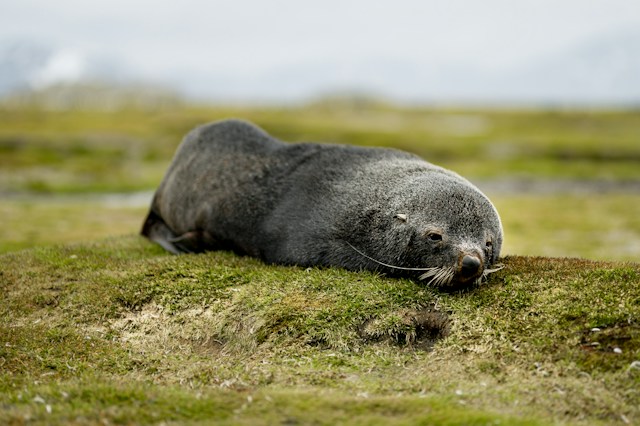The UK has unique power over one of the world’s biodiversity hotspots – Inside track
3 min read
Over 1,050 miles from the tip of South America, in the South Atlantic Ocean, is a UK overseas territory without a permanent population, South Georgia and the South Sandwich Islands (SGSSI). Many Antarctic islands and seas have seen large scale nature depletion due to centuries of exploitation and SGSSI is no exception.
Antarctic fur seals were hunted to near extinction, some seals, whales and penguins were exploited to the extent that these practices were no longer profitable and, more recently, fishing for less valuable species such as krill has begun. The ecosystem in SGSSI is also under threat from climate change. As Antarctic sea ice retreats, the impact on species recovering from overexploitation is understudied and unknown. With COP28 due to begin this week, the government should take this opportunity to protect this internationally valuable ecosystem.
Despite the threats, the islands and their surrounding waters are starting to recover from previous overexploitation and are now extremely biodiverse unique ecological communities. They support over 29 species of seabirds, are important breeding grounds for whales and thousands of breeding pairs of several species of penguin. On top of this, in the deep waters surrounding them are hydrothermal seabed vents that support species found nowhere else in the Southern Ocean. This area could be the largest concentration of marine life in the world.
This government has one more chance to make its markAt the end of this year, the government will review the Marine Protected Area covering the islands. It’s a chance to do more to safeguard this biodiversity hotspot. This scientific review process takes five years, so it will be the last opportunity for this government to act before an election.
While SGSSI is covered by some level of protection, currently only 23 per cent of the area is off limits to commercial extraction, meaning industrialised krill fishing is legal in the majority of the waters which are unprotected. This could threaten a vital food source for the seals, whales and penguins. To combat this, the UK could use its review to create a South Atlantic Marine Wildlife Sanctuary and fully protect more of this important marine environment.
Specifically, the Marine Protected Area should be improved by enhancing the no-take zone around the South Sandwich Islands. And, in South Georgia, more offshore areas should be closed off to krill fishing and a more precautionary krill catch limit set for other areas.
Why is this additional protection needed? This is an area where a hugely positive environmental recovery story could be told. The humpback whale population was hunted until there were only 450 individuals left but, because of protections in place, the population is now estimated to be 23,000, nearly back to its pre-industrial level.
But the story is not so positive for all the species found in this area. Fin whales, hunted to near extinction for oil, and have only just begun to return to these waters. They depend on the krill around South Georgia, so increasing industrialised fishing threatens their recovery.
The two previous rounds of the review process, in 2013 and 2018, considered the threats to the region from overfishing and climate change and increased protections. Earlier this year, two scientific papers recommended designating a no-take area where fishing is not allowed. The government will assess the submissions from the scientists, local government and an independent panel, then ministers from the Foreign, Commonwealth and Development Office will ultimately decide whether or not the UK will do more.
Photo credit: Hubert Neufeld on Unsplash





